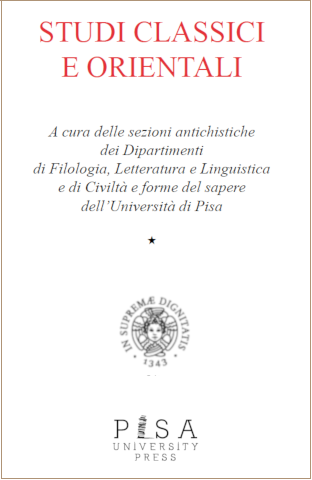Precisazioni intorno a una regola buddhista nella Cronografia di Barhebraeus
Abstract
On a Buddhist rule in the Chronography by Barhebraeus.
In the chapter dealing with Mongol religious habits in the Chronography
by Barhebraeus (1225/6-1286), we find precise reference to a Buddhist
rule on the consumption of meat: the rule states that if the meat of
an animal killed on purpose is offered to monks, they are not allowed
to eat it. Barhebraeus’ primary source concerning the Mongols was the
Persian History of the World’s Conqueror by ʽAṭā Malek Jovayni, which
makes no mention of this rule in the corresponding passage: it must
have been an addition of Barhebraeus himself, based on his personal
experience. For this reason, we can assume that he had met some Buddhist
monks, most likely during his stay in Maragha. In the region of
the Ilkhanid capital, a flourishing cultural center of the Near East, there
must have been several Buddhist temples and/or monasteries, as we
know from later historiographical accounts (Rašīd al-Dīn, al-Qāšānī).
Along with several other data (mainly literary and topographical), this
reference provides significant evidence of a sizeable Buddhist presence
in Western Iran, that is farther west than the limit of securely identifiable
Buddhist archaeological remains (i.e., the Kandahar – Merv line).
bertozzi_roberto@hotmail.it


